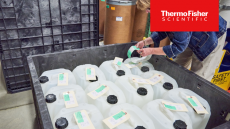WHO COVID-19 trial moves ahead with three drug candidates

The World Health Organization (WHO) is ready for the next phase in its Solidarity trial, designed to come up with viable drug candidates to treat COVID-19. The Solidarity PLUS study is poised to enroll hospitalized COVID-19 patients in 52 different countries in order to test three therapies: artesunate, imatinib, and infliximab.
Candidate selection
According to WHO, the three drugs (donated by their respective manufacturers) were identified and selected by an independent panel of life-science experts, selected for their potential to reduce the risk of death in severe COVID-19 patients. All three are in circulation for other candidates: artesunate for severe malaria, imatinib for a range of cancers, and infliximab for immune-related diseases (including Crohn’s and rheumatoid arthritis).
“Finding more effective and accessible therapeutics for COVID-19 patients remains a critical need, and WHO is proud to lead this global effort,” said Tedros Adhanom Ghebreyesus, WHO director-general. “I would like to thank the participating governments, pharmaceutical companies, hospitals, clinicians, and patients, who have come together to do this in true global solidarity.”
Solidarity PLUS reportedly represents the largest global collaboration among WHO member states, involving thousands of researchers in more than 600 hospitals across the 52 countries. The structure enables the trial to evaluate multiple treatments at once under a single protocol, and to add new treatments or drop ineffective ones during the course of the study.
In earlier stages of the Solidarity study, researchers evaluated four other drugs: remdesivir, hydroxychloroquine, lopinavir, and interferon. According to researchers, the quartet of therapies had little or no effect on hospitalized COVID-19 patients.
About the drugs
Artesunate, produced by Ipca, is used to treat malaria. During the Solidarity PLUS study, the drug will be administered intravenously for seven days, using the standard dose recommended for the treatment of severe malaria.
Novartis’s Imatinib typically is used to treat cancers. The trial team will administer the drug orally once daily for two weeks.
Infliximab, produced by Johnson and Johnson, is commonly used to treat immune-system disease. IT will be administered via IV in a single dose.



















